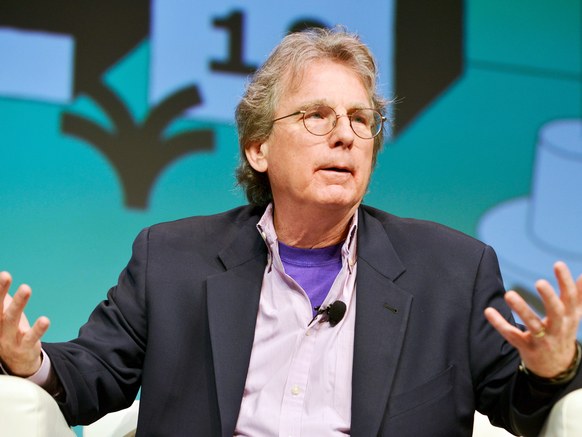
LONGTIME SILICON VALLEY investor Roger McNamee met Mark Zuckerberg in 2006, when the Facebook CEO was just 22 and his two-year-old company still only catered to university students. Facebook was young, but McNamee was already convinced it was “the next big thing,” he told WIRED editor in chief Nicholas Thompson on Sunday during a keynote conversation at SXSW 2019 in Austin. “The thing that had killed every attempt at social apps before that [was] essentially that the ability to be anonymous allowed trolls to take over. I was convinced that Mark’s requirement of authenticated identity was literally the holy grail, it was the thing that was going to unlock this opportunity.”
There was no investment opportunity at the time; McNamee viewed their meeting as a way to offer advice—and a chance “to meet the young guy who had figured [social networks] out.” As McNamee admits, “I didn’t even have it in my head that a thing like Facebook could go bad. I was a technology optimist like everybody else.”
In the decade-plus since that first meeting, McNamee, who went on to invest in Facebook, has become a vocal critic of the company. In fact, he’s the recent author of Zucked: Waking Up to the Facebook Catastrophe, a book where the subtitle alone drives home just how much McNamee’s view on the company has changed.
McNamee explained the arc of his view. Early in the 2000s, the burgeoning companies of Web 2.0, like Google, Paypal, and Facebook, began “blitz-scaling.” And as they quickly grew, they operated from a different value system, McNamee said, which basically said “none of us is responsible for the disruptions that we create.” The founders of these companies collected loads of personal data to fuel their own growth and profits and thought it was OK. “I don’t think that in prior generations of Silicon Valley, people would have thought that way,” McNamee said. “These people are brilliant, and I have enormous admiration for what they created; I just wish we could have created it without some of the business model characteristics that are causing the harm.”
McNamee still owns Facebook stock (and has a Facebook account), he says, so that people don’t think he’s trashing the company because he sold his interest in it. “Look, I understand I’m not the perfect messenger,” he said. “What I ask people to do is just think about the message. And understand this isn’t really about Facebook.”
McNamee said his concerns began with Facebook because he knows it best, “but this is a problem that is endemic in a world where the business model is about tracking human beings, claiming eminent domain on their personal data, using it for behavioral prediction, and then using the tools of machine learning and AI to steer people toward outcomes that make those predictions more valuable.”
McNamee said he is especially concerned because users, and society, have not had a chance to debate whether companies should gather information and profit from people’s financial transactions, health data, or location. “That may be fine, but all of that business model developed behind a curtain,” he said. “We didn’t know that’s what was going on. And there’s a lot of history that says that’s a model that we don’t want.”
Asked about Elizabeth Warren’s recent proposal to break up the big tech companies, McNamee called it “brilliant.” In response to another question, McNamee said he is advising Warren’s team, as well as consulting with the campaigns of two other Democratic presidential candidates, Amy Klobuchar and Cory Booker.
McNamee discussed a number of other issues, including the pros and cons of Europe’s General Data Protection Regulation, the deepening divide between America and China’s tech spheres, and the problems he sees with Google, Microsoft, and Amazon.
But in the end, the conversation came back to Facebook and its business model. An audience member asked if Zuckerberg should step down. “No,” McNamee said emphatically. “I don’t think this is about the people. I believe that this is about the business model. Larry [Page] and Sergey [Brin] at Google and Sheryl [Sandberg] and Mark at Facebook have the moral authority to change the business model. If you don’t change the business model, it doesn’t matter who’s running it, and if you do change the business model, it’s OK whoever’s running it.”
